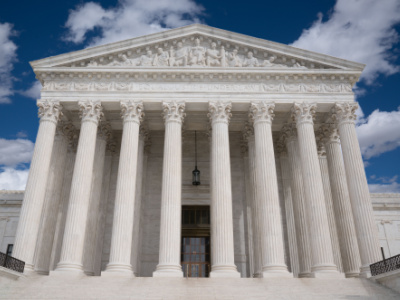On April 18, 2023, the U.S. Supreme Court heard oral arguments in a case involving a former U.S. Postal Service (USPS) worker who was denied a religious accommodation to observe his sabbath. The broad implications of a decision that favors the former worker could change the analysis for employers when assessing employee requests for religious accommodations.
Background
Gerald E. Groff is an evangelical Christian who began working at the USPS in 2012. In 2013, the USPS contracted with Amazon to deliver packages on Sundays.
At that time, Groff was given an exemption from working on Sundays by his postmaster, but after a union agreement was put into effect, the exemption was no longer allowed. To avoid working Sundays, he was transferred to another post office location that hadn’t yet implemented Sunday deliveries.
In 2017, when Groff’s new post office began requiring delivery on Sundays, he offered to work extra shifts instead. The postmaster first proposed adjusting his schedule to permit him to come to work after attending Sunday services and later tried to find volunteers to replace him on the Sunday schedule. If other workers couldn’t cover a shift, the postmaster would work himself.
Ultimately, Groff was scheduled for Sunday work but didn’t show up. As a result, he became the focus of resentment and a grievance by a coworker. In the face of continued discipline for his refusal to work on Sundays, he eventually resigned and sued the USPS for failing to accommodate him under Title VII of the Civil Rights Act of 1964.
Title VII Implications
Under the general rules of religious accommodation, an employer need not provide the accommodation preferred by the employee—rather, “any reasonable accommodation by the employer is sufficient to meet its accommodation obligation.”
During oral arguments at the Supreme Court, the justices focused on the context of the case. Some pondered whether the accommodation Groff sought was possible for large employers but might be more burdensome to a small employer. There were questions concerning the impact on coworkers and when that rises to the level of an undue hardship in cases where the accommodation is disruptive or affects the business as a whole. Finally, the Court addressed how an accommodation for some Christians who had observance obligations might have an impact other Christians who want to attend church services on Sundays but feel they don’t meet the requirements for a similar accommodation.
The Supreme Court will have to resolve Groff’s claim that the Title VII de minimis (minimal) standard “violates [its] promise that employees should not be forced to choose between their faith and their job,” and “makes a mockery of the English language,” on the grounds that it cannot be squared with the term “undue hardship.”
Further, the Court will have to decide if the de minimis standard should be replaced by the Americans with Disabilities Act’s (ADA) “significant difficulty or expense” test. The Solicitor General, in opposition, argued the 1977 Supreme Court decision in Hardison defined undue hardship by using the term “de minimis” interchangeably with “substantial cost.” Thus, the Solicitor General argued Hardison should be upheld but—in the face of questioning—acknowledged the analysis was always heavily fact- and context-based. Groff v. DeJoy.
Bottom Line
If the Supreme Court rejects Hardison’s de minimis test, it could conceivably adopt an interpretation of undue hardship that aligns with the ADA interpretation requiring employers to accommodate, unless doing so would impose significant difficulty or expense. The analysis looks to the context of the facts, the nature of the accommodation (including cost), the employer’s size, resources, and other related factors. If the Court changes the standard of what constitutes an “undue hardship” under Title VII, employers will be best advised to adjust their approach to employee requests for religious accommodation.
Steve Gutierrez is a partner of Holland & Hart LLP in Denver. He can be reached at sgutierrez@hollandhart.com.

